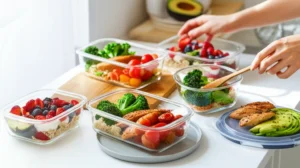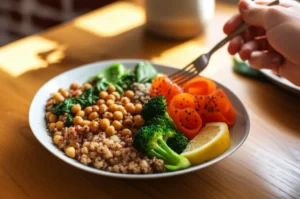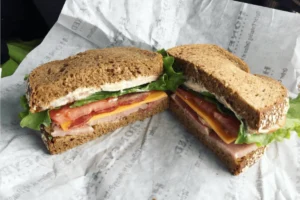Have you ever felt that tiny spark of victory when you realize you spent way less at the grocery store than usual? That mix of surprise and quiet joy? Managing money well is kinda like that—it’s not just about numbers, but about feeling more in control, more peaceful with your choices. Now, if you’re anything like me, diving into a “how to save money book” isn’t about boring lectures; it’s like getting advice from a friend who’s figured out the art of stretching dollars, especially for those sneaky food expenses.
So today, I’m pulling together some of the best books that aren’t just about saving money—they’re about saving your sanity (and your grocery budget). Let’s talk about real stories, warm tips, and some clever hacks that make frugality feel… well, friendly.
Books Sparking Curiosity
Why These Feel Like Friends
Imagine settling in with a book that doesn’t just tell you to cut back but actually feels like it cheers you on with every tip. These aren’t dry finance manuals—they’re personal stories and practical wisdom from people who’ve been in the same budget mess as you. Think less “budget sermon,” more cozy chat.
For example, one friend shared how reading a book reminded her to check what was already in her fridge before shopping, saving her from overbuying fresh veggies that ended up wasted. Simple, right? Yet it changed her whole week.
If you’re hunting for quick ways to slice your food spending without turning your life upside-down, dipping into 10 ways to save money can spark some ideas you can actually use. And if you want tips keyed specifically to the paycheck jams, how to save money from salary is a solid spot to start.
Tightwad Gazette Magic
Old-School Frugality That Still Works
Amy Dacyczyn’s “The Complete Tightwad Gazette” is kinda like that quirky neighbor who’s got the best thrift store finds and kitchen hacks. It’s full of essays that mix humor with hardcore saving strategies.
How It Works For Food Savings
From mastering coupon strategies to buying staples in bulk, Amy’s approach turns thrifty living into an art. What I love? Her mindset advice is timeless—even though some examples feel delightfully vintage.
Quick example: Instead of buying pre-packaged snacks, she shares how making your own trail mix or baking bread can save seriously over time. That trick alone saved me around $15 a week.
Couponing vs. Digital Deals: A Quick Table
| Method | Typical Weekly Savings | Effort Level |
|---|---|---|
| Clip Coupons | $10-$20 | Medium |
| Use Apps & Digital Deals | $15-$25 | Low |
This way of saving really lines up with those nights when you just want to relax rather than hunt deals all day. For more everyday hacks, check out some clever ways to save money that feel less like work and more like smart living.
Your Money or Your Life
Re-thinking Spending Habits
Vicki Robin’s classic nails something huge: money is life energy. Spending isn’t just numbers; it’s about what you really value. Ever noticed how it’s easier to order takeout than cook after a long day? She’d say, “Ask yourself, does this meal fuel my life or just fill a moment?”
This Book’s Food Focus
Tracking every dollar spent on food might sound tedious, but it’s a powerful wake-up call. When you see how those $5 coffee runs add up, it clicks that a little planning can free up a ton more dough for things that matter.
If you’re trying to stretch your paycheck, pairing this with how to save money from salary tips can really boost your food savings without feeling like deprivation.
The Latte Factor Approach
Small Tastes, Big Savings
David Bach’s “The Latte Factor” is so relatable because it focuses on those teeny money leaks that we barely notice—like daily coffee or snacks—that quietly drain our budgets.
How It Translates to Your Kitchen
It boils down to swapping out overpriced store-bought treats for fun homemade versions or even simply brewing your own coffee. Believe me, the saccharine joy from saving can be as sweet as that fancy latte.
Snack Savings Showdown
| Snack | Cost per Month | Homemade Version Cost |
|---|---|---|
| Daily Coffee Shop Latte | $75 | $15 (home beans) |
| Packaged Snacks | $40 | $12 (bulk nuts & dried fruits) |
I once joked with a friend about trading soda money for community garden veggies. Turns out, it was a literal game-changer—cut her fresh produce costs by half! For more budget-friendly ideas to shake up your shopping list, peek at these clever ways to save money tips.
Total Money Makeover Boost
Snowball Your Way to Food Freedom
Dave Ramsey’s approach is no-nonsense and powerful. The idea of “envelope budgeting” sounds old-school, but man, it’s alive and kicking, especially for tight food budgets.
Everyday Budget Wins
Dividing your grocery cash into envelopes can stop you from overspending midweek or falling into that “just one more snack” trap. It’s like having a mini gatekeeper for your wallet.
Want to really amp your budget with straightforward life hacks? Don’t miss these 10 ways to save money that can make your food savings feel totally doable.
Psychology of Money Insights
Understanding Why We Overspend
Morgan Housel’s book digs into something I find fascinating—why do we sabotage the very goals we want? Why grab those extra chips when you know it’s over the budget? It’s not just willpower; it’s psychology.
Food and Emotional Spending
Recognizing triggers, like stress or boredom, can help you catch those impulse buys before they happen. Ever bought those “impulse snacks” at checkout? Journaling about these urges can be an eye-opener.
What’s your biggest food splurge trigger? Feeling curious? Write it down tonight. For low-income life especially, pairing this with how to save money fast on a low income can help you hack your habits without feeling deprived.
Simple Path to Wealth Basics
Invest What You Save
JL Collins speaks to me like a dad giving advice over the kitchen table: Keep it simple and focus on the basics. His main point? Start investing what you save, no matter how small. And heck, saving on food is often the easiest place to start.
Automate to Win
Automating savings means you’re less tempted to spend what you don’t see. Plus, when you automatically set aside a little from each paycheck, you build habits that last.
Clear Comparison: Save vs. Spend
| Action | Monthly Cost | Potential Investment Gain (1 Year) |
|---|---|---|
| Eating Out Frequently | $200 | $0 |
| Cooking at Home, Saving $200 | $0 | ~$24 (at 1% interest) + habits |
Small changes like this add up. If you want to see how fast tweaks on a tight budget can supercharge your savings, how to save money fast on a low income has some inspiring ideas.
Wrapping It Up: Your Friendly Guide to Saving
There you go—six books that don’t just tell you “save money” but actually feel like genuine chats with people who’ve figured out how to squeeze comfort and sanity out of their budgets. Whether it’s Amy Dacyczyn’s warm thriftiness or Dave Ramsey’s no-nonsense contours, each book helps you uncover food savings that don’t feel like sacrifice.
Imagine going to the store and feeling calm, knowing your plan works. And when that extra money pops up? Well, maybe it’s for a small treat or just peace of mind. Why not start with one book that speaks to you? Maybe it’s Your Money or Your Life for those emotional spending habits, or Bach’s Latte Factor if little leaks drive you nuts.
And if you’re facing the paycheck crunch, pairing your read with how to save money from salary or clever ways to save money tips can really tip the scales. These books and resources give you the tools, but you’ve got to take the first step—put the knowledge into action.
Saving money isn’t about perfection; it’s about progress. And hey, progress is a heck of a lot sweeter when it feels like a friendly nudge rather than a chore. So, what’s your first step? Got a favorite money-saving book or a quirky food budget hack? I’d love to hear your thoughts!













